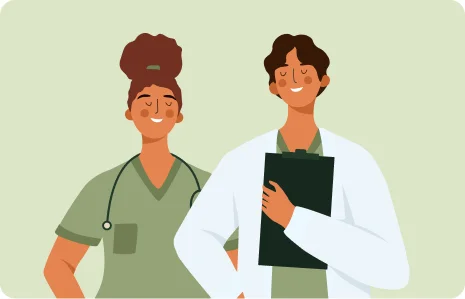Every year, there are approximately 47,000 suicides in the U.S., each leaving behind more than 100 people who knew the victim. About one-third of those people report feeling very close to the person who died, which means about one million people a year are directly impacted by the suicide of someone close to them. Those who have lost someone to suicide, whether it be a family member or friend, are referred to as survivors of suicide.
Grieving a loved one’s suicide is a complicated process. There’s no right or wrong way to do it. This type of loss is sudden and unexpected, leaving survivors feeling unprepared and without a clear understanding of why it happened. As a result, survivors of suicide often experience some combination of anger, guilt, shame, regret, and blame.
A common misconception about victims of suicide is that they don’t think about the impact their death will have on the loved ones they leave behind. The reality is that many do think about the impact their actions will have on others, but their thinking is often incorrect. They convince themselves that they are a burden and that people would feel better if they weren’t around. It’s this tragic false thinking that leads many individuals to take their own lives.
Each year, on the Saturday before Thanksgiving, we observe Survivors of Suicide Loss Day, a designated day for survivors to come together for healing and support. At iTrust, we know that having the proper support can make all the difference, so we work each day to get survivors the help they need as they grieve and process their losses.
Understanding Suicide’s Impact on Survivors
On top of the grief people experience from a “conventional” death, survivors of suicide must battle a combination of guilt, confusion, and emotional turmoil. Grief, in general, is a nonlinear process. This already complex process is further complicated for survivors who are struggling to find a new norm in the wake of unexpected loss. They know things can never go back to how they were before, so they have to figure out how to adjust to life without their loved ones.
Grief looks different for everyone. Whether you’re a survivor yourself or a friend of a survivor, remember to extend grace and have patience. Everyone responds differently to this type of loss, whether that be going into isolation, taking the blame, or anything in between. Some responses are more productive than others, so if you’re a survivor, try to be mindful of how you’re responding to the loss and determine if your thoughts or behaviors are healthy and helpful.
Survivors endure several unique struggles. For starters, they want others to remember the good about their loved ones instead of their cause of death. At the same time, they may be reminded of the sadness their loved one experienced when alive and their own helplessness. Then again, some memories may cause some survivors to feel a sense of relief. If a loved one has endured a long battle with a mental health disorder, the survivors may find comfort in knowing their loved one is no longer suffering.
One feeling that’s unique to many survivors of suicide is anger at the loved one for committing suicide. While understandable, this anger can cause feelings of guilt that perpetuate the spiral of complex emotions in the wake of inexplicable grief.
If you’re a survivor of suicide, remember there is no right or wrong way to grieve. Take whatever time, space, and steps you need to process your loss. It’s okay to cry — that’s a natural response to sadness. And if you have moments when you laugh, that’s okay, too. Just because you experience happiness in the midst of grief doesn’t mean you aren’t still saddened by the loss.
If you need help or support, don’t be afraid to ask for it. Talking about loss and suicide can be difficult, but the right people will be there to share your burdens.
How To Support Survivors
Suicide can be an uncomfortable topic to approach. It’s okay to feel unsure about what to say or do but don’t let that keep you from offering support. Many survivors feel lonely and isolated due to the stigma associated with suicide. What they need most is compassionate support from someone who will listen with empathy and without judgment.
Start by listening. Many survivors are hesitant to share their stories. Let them talk at their own pace. To be an effective and nonjudgmental listener, set aside any preconceptions you may have about suicide or the victim. Be patient. Repetition is part of the healing process, and many survivors will repeat their stories as they process what happened. Instead of calling this to their attention, simply sit back and listen.
Remember that it’s never helpful to tell a survivor how to handle their grief. Their journey is personal and unique. Don’t give them a timeline for healing or tell them how they should act and feel. Putting parameters on their healing process can do more harm than good and make them feel guilty that they aren’t feeling better more quickly.
Finally, in your attempt to support survivors, refrain from saying you know how they feel unless you are a survivor yourself. Only survivors truly know how it feels. If you haven’t experienced the same loss, you can empathize with them, but don’t pretend to understand. Survivor support groups exist to provide the understanding and support only other survivors can provide.
If you or someone you know are a survivor of suicide, iTrust is here to help. Whether it’s getting you plugged into counseling or pointing you toward tools and resources, our team of experts can provide the compassionate care and support you need.








